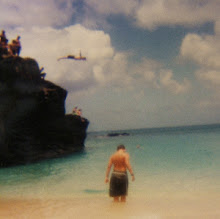Francis described the changes in his life as a result of his studies, changes that impacted the congregation among whom he ministers. Then he spoke of what was missing. He rebuked KBTC administrators for limiting the educational experiences. He demanded to know why more women students were not encouraged to seek advanced education (two of the eight graduates were women). He challenged the moderator of the Baptist Convention of Kenya to address the fact that so few churches had called female ministers into leadership. This is a young man determined to see education make a difference in Kenya.

On Sunday, six of us Americans were finishing up a safari (more about that later) when we decided to accept our driver's offer to take us to a Masai village. Of all the people groups in Kenya, the Masai are most resistant to change. They have not adopted western clothing or living structures; they do not live in cities or have an overarching tribal governance structure. While some Masai have left their villages for education or for work as guards, many still live in traditional villages. Here you see the young men of the small village we visited. The one in blue (named John) is the son of the chief; he conducted a tour for us after collecting 1000 Kenya shillings (about $15 US) from each person. This money goes into a community fund to pay for teachers and health care.

The life of a Masai village revolves around cattle. The men tend them out in the savanna and bring them back into the village compound every night. The Masai drink cow's milk and cow's blood. For special events (three or four times a month), they will slaughter a cow for the meat. The women fetch water and firewood and build the houses, using dirt and cow manure to plaster the walls. They take care of the children and the cooking. More and more Masai are becoming monogamous, but one can still encounter men with several wives. In such a case, each wife will have a house and the husband will sleep in the houses on a rotation.

In the village we visited, the women displayed their beadwork as well as some items the men had carved. The income from sales of these items helps provide for community needs. The children are sent to a school where they learn Swahili and English. There were Christians in the village we visited; some of them had gone to church, a walk of about thirty minutes. John declared himself to be a Christian and we promised to pray for each other.
I have just found out that on the Thursday when our team was finishing up the Bible school in Gachie, a gang of about ten Kenyan men attacked a group of Dutch volunteers who were rebuilding a school (see this news article). Besides robbing the volunteers and the Kenyans with whom they were working, the thugs raped five of the Dutch women. As I reported in a previous post, one member of our team had been held at gunpoint on Monday.
So these days illustrate the different approaches by Kenyans to the strife, fear, and disease that menace the country. The Thursday thugs have adopted an anarchic "survival of the most violent" approach. The Friday graduates have opted for increased education and social concern. And the Sunday Masai have decided to withdraw into tradition. Which way will ultimately prevail in Kenya?

1 comment:
Wow.
Those are some deep contrasts.
wow.
Post a Comment